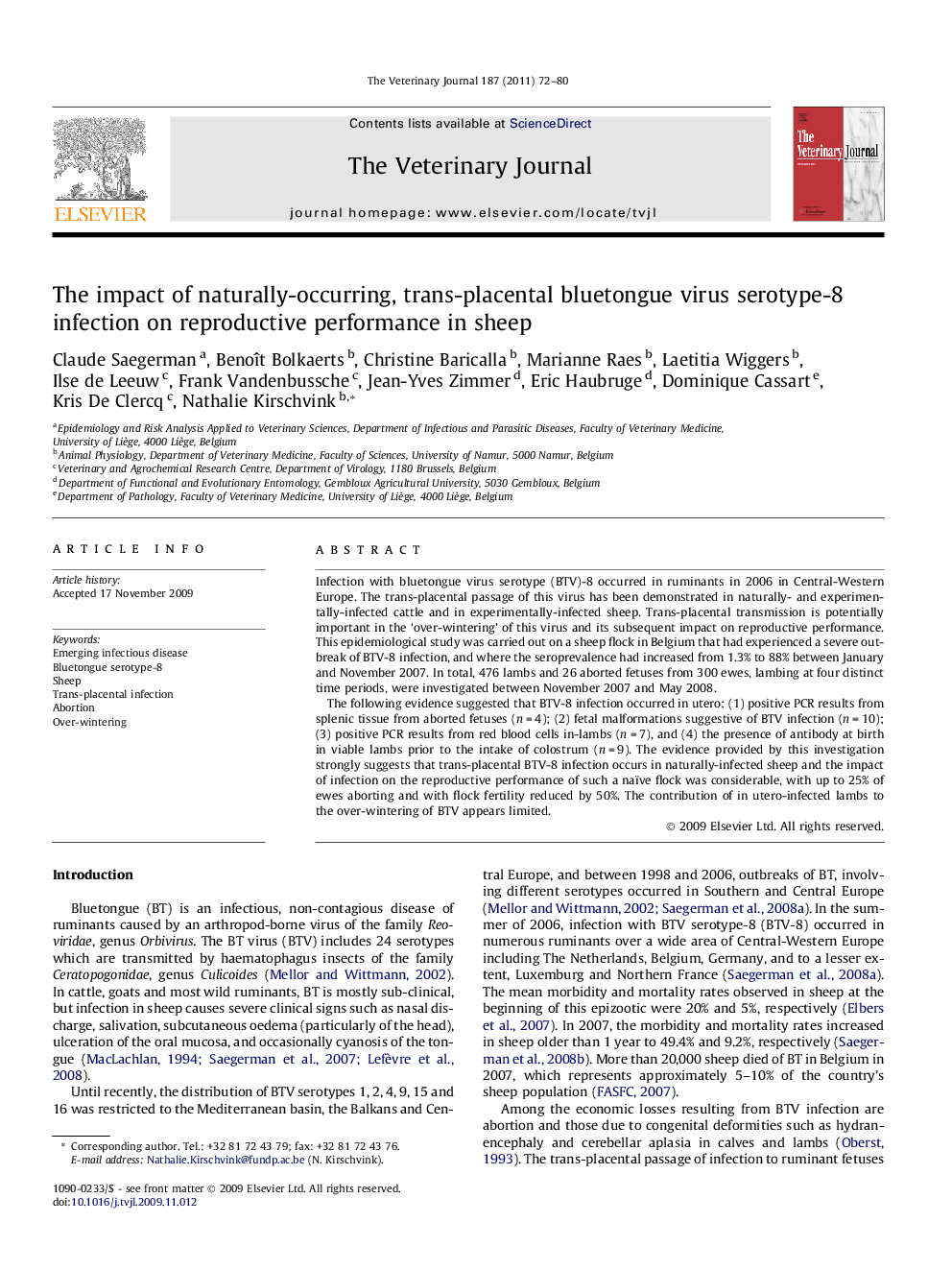| Article ID | Journal | Published Year | Pages | File Type |
|---|---|---|---|---|
| 2464953 | The Veterinary Journal | 2011 | 9 Pages |
Infection with bluetongue virus serotype (BTV)-8 occurred in ruminants in 2006 in Central-Western Europe. The trans-placental passage of this virus has been demonstrated in naturally- and experimentally-infected cattle and in experimentally-infected sheep. Trans-placental transmission is potentially important in the ‘over-wintering’ of this virus and its subsequent impact on reproductive performance. This epidemiological study was carried out on a sheep flock in Belgium that had experienced a severe outbreak of BTV-8 infection, and where the seroprevalence had increased from 1.3% to 88% between January and November 2007. In total, 476 lambs and 26 aborted fetuses from 300 ewes, lambing at four distinct time periods, were investigated between November 2007 and May 2008.The following evidence suggested that BTV-8 infection occurred in utero: (1) positive PCR results from splenic tissue from aborted fetuses (n = 4); (2) fetal malformations suggestive of BTV infection (n = 10); (3) positive PCR results from red blood cells in-lambs (n = 7), and (4) the presence of antibody at birth in viable lambs prior to the intake of colostrum (n = 9). The evidence provided by this investigation strongly suggests that trans-placental BTV-8 infection occurs in naturally-infected sheep and the impact of infection on the reproductive performance of such a naïve flock was considerable, with up to 25% of ewes aborting and with flock fertility reduced by 50%. The contribution of in utero-infected lambs to the over-wintering of BTV appears limited.
